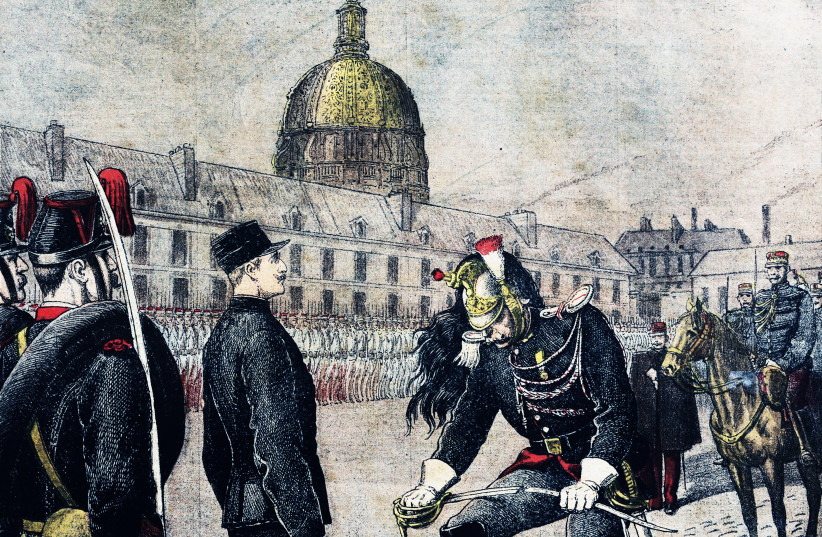On October 15, 1894, Alfred Dreyfus was wrongfully arrested for espionage in France. He would later be convicted and exiled.
Dreyfus was born in October of 1859 to a wealthy Jewish family in France. He entered the École Polytechnique, an institution for higher education, in 1882, before settling on a military career.
Within seven years, Dreyfus had risen to the rank of captain by 1882. In 1894, Dreyfus was working in the War Ministry when he was accused of selling military information to Germany and arrested in October. He was convicted two months later and sent to life imprisonment in exile in the penal colony of Devil's Island.
The legal proceedings that led to Dreyfus' conviction were clearly not genuine. While Dreyfus and his family continuously insisted on his innocence, public opinion and the French press echoed widespread antisemitic perceptions of Jews as disloyal - a view that was especially voiced in the newspaper La Libre Parole.
New evidence was found, however, that Dreyfus was indeed innocent. Lieutenant Colonel Georges Picquart discovered that Major Ferdinand Walsin-Esterhazy was engaging in espionage. He also found that a letter that was used as significant evidence against Dreyfus was written in Esterhazy's handwriting.

Picquart was removed from his post soon after this discovery, and it is believed that his superiors did not want to deal with the evidence because it was inconvenient for them.
Things only got more complicated after this. With support for Dreyfus growing, Esterhazy began inventing evidence and rumors in order to incriminate Dreyfus. Additionally, Major Hubert Joseph Henry, an expert forger, helped Esterhazy fabricate new evidence and suppress the genuine documents.
In 1898, Esterhazy was brought before a court martial, but he was ultimately acquitted and Picquart was arrested instead.
Following Picquart's arrest, Émile Zola wrote an open letter for the front page of the Aurore titled "J'accuse". The letter accused the army of intentionally covering up their mistaken conviction of Dreyfus.
What resulted was a polar split in France. Among those who supported Dreyfus, there was a demand to reopen the case, and a petition was signed by 3,000 people including intellectuals such as Marcel Proust.
The other side was strongly against reopening the case, and this faction participated in antisemitic riots in the provinces. They also called for Zola to stand trial, which began a month after the letter was published. He was found guilty of libel and given a year in prison as well as a fine of 3,000 francs.
Over the next year, the case for Dreyfus was strengthened. Henry admitted to his forgeries shortly before committing suicide, and Esterhazy fled to Belgium and London.
In 1899, it was decided to bring the issue to rest once and for all, and Dreyfus was brought back for a retrial. He was once again found guilty in September 1899, but the president pardoned him. Dreyfus accepted the clemency, but he insisted that it was his right to do everything he could to prove his innocence.
In 1906, after another retrial, a civilian court of appeals cleared Dreyfus and reversed the prior convictions.
Dreyfus was reinstated and awarded the Legion of Honor. The rest of his service was short. He attained the rank of major but retired soon after, returning to service for World War I, after which he retired for good.
